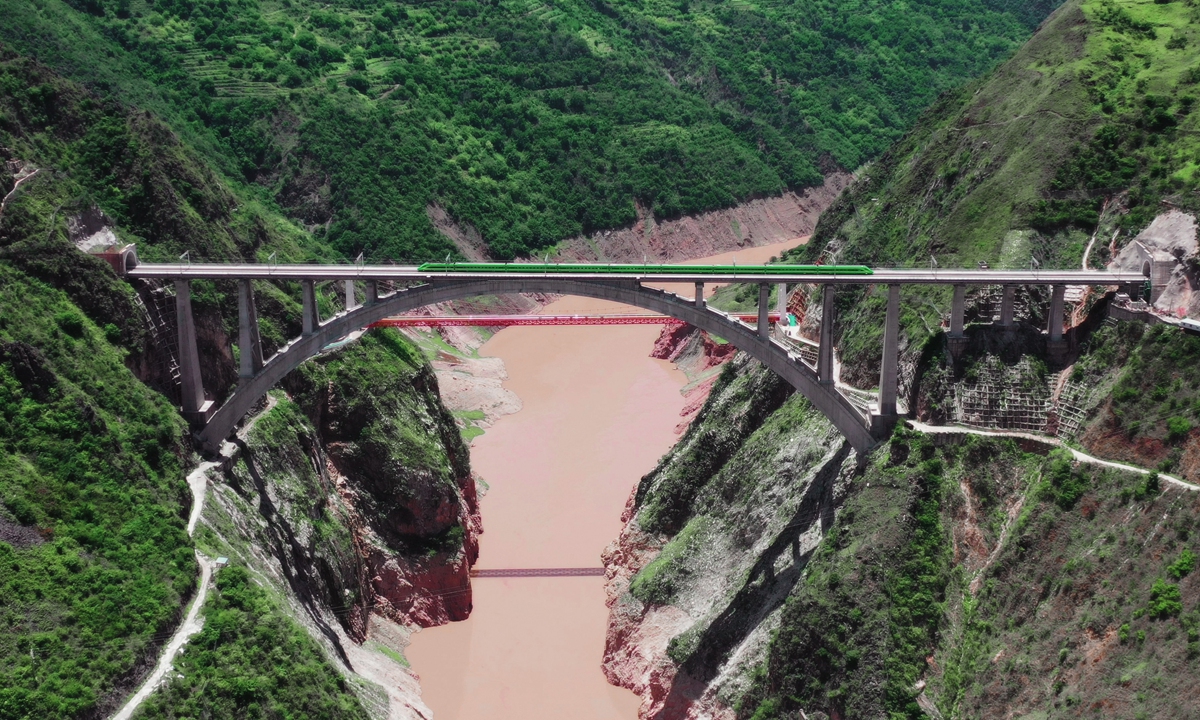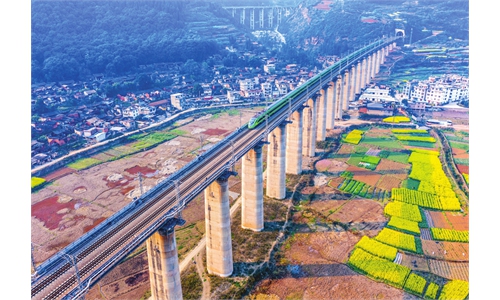Dali-Baoshan railway to start operations on Friday, as the China-Myanmar international rail corridor achieves a major breakthrough

A train crosses the Lancangjiang Railway Bridge. File photo: Courtesy of China State Railway Group CoA train crosses the Lancangjiang Railway Bridge. File photo: Courtesy of China State Railway Group Co
A railway linking Dali and Baoshan, two cities in Southwest China's Yunnan Province, will start operations on Friday, the China State Railway Group Co announced on Thursday, describing the opening of the rail line a major breakthrough in the construction of the China-Myanmar international railway corridor.
Experts said the progress is a milestone in the construction of the Trans-Asian railway (TAR), the western route which links China and Myanmar.
The Dali-Baoshan railway is one of the two legs of the 330-kilometer-long railway between Dali and Ruili, which lies at the China-Myanmar border.
The Dali-Baoshan section is 133 kilometers long and passes through the steep canyons and rapid rivers of the Hengduan Mountain Range with 34 bridges and 21 tunnels that have a combined length of 115.8 kilometers, or 87 percent of the total length of the line. The railway is electrified and has a designed speed of 140 kilometers per hour.
Travel time between the provincial capital of Kunming and Baoshan is slightly less than 3.5 hours on the fastest train service. The railway's cargo transporting capacity means that construction materials, chemicals and agricultural products can now be quickly sent to Baoshan, where Chinese and American troops battled with invading Japanese troops during World War II.
China's state train operator said the railway adds Baoshan into China's sprawling railway network and will play vital role in rural revitalization and serve the Belt and Road Initiative and the China-Myanmar Economic Corridor.
Sun Zhang, a railway expert from the Shanghai Tongji University, told the Global Times on Thursday that the western route of the TAR will link up China's production capacity and vast market to the Indian Ocean and the Gulf of Bengal.

